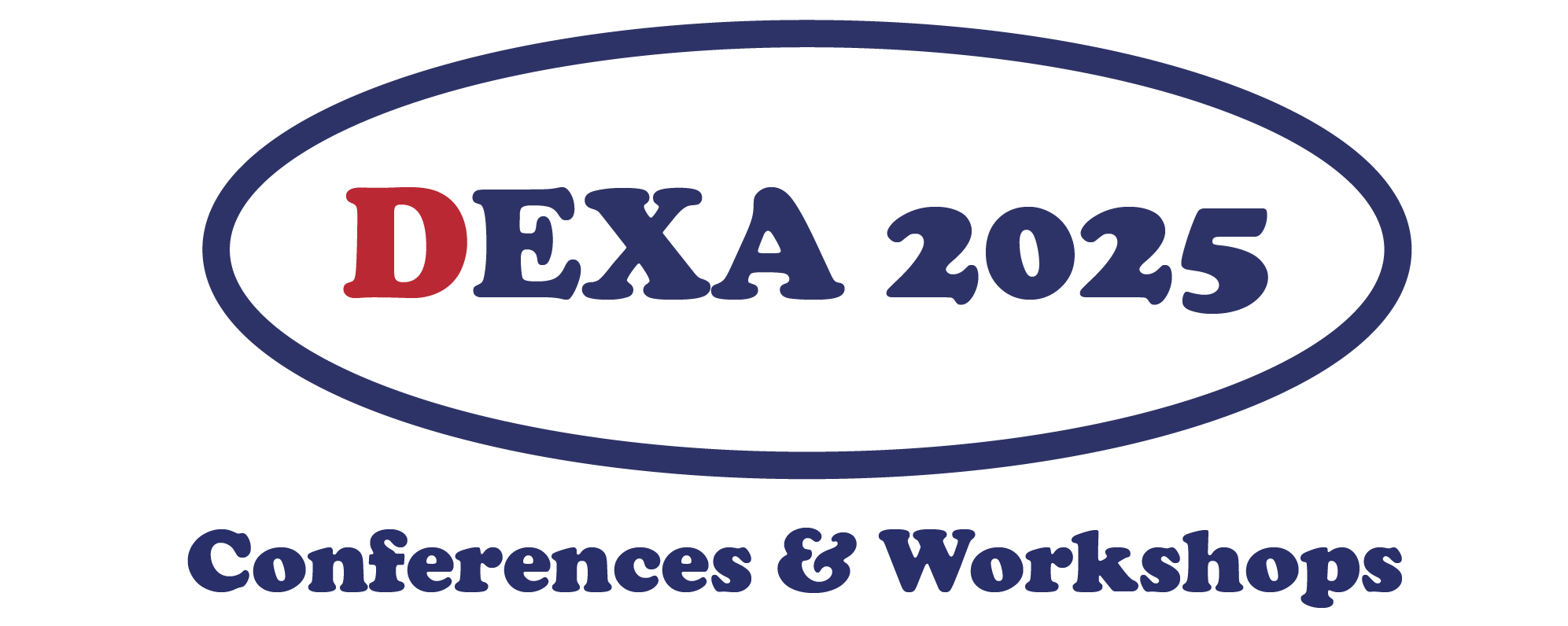Papers Submission
DEXA conferences and workshops accept four different types of contributions:
- Original research work: The contributions are expected to show original work that provide foundations to further progress research in the area. Rigorous proofs and/or performance measurements are expected for this type of contribution.
- Real life case studies: The contributions are expected to show a real-life case study of an adopted concept and technology. The analysis of the case study should provide an original insight and findings, backing up by data collected from experiments and/or observation.
- Experimental work: The contributions are expected to show reporting of rigorous comparative experiments of existing algorithms/systems to provide insight to the current state of the art in a research domain.
- Lessons learnt reports: The contributions are expected to show lessons learnt from adoption of complex technology integration or implementation.
Publication & Indexing
All DEXA conferences papers will be published by Springer in their Lecture Notes in Computer Science (LNCS). DEXA workshops papers will be published by Springer in their Communications in Computer and Information Science (CCIS). LNCS and CCIS volumes are indexed in Scopus; EI Engineering Index; Google Scholar; DBLP; etc. and submitted for indexing in the Conference Proceedings Citation Index (CPCI), part of Clarivate Analytics’ Web of Science.
Submission Guidelines
Submitted papers must not substantially overlap with papers that have been published or that are simultaneously submitted to a journal or a conference with proceedings.
Submitted papers will be subject to stringent peer review by at least three members of the international program committee and carefully evaluated based on originality, significance, technical soundness, and clarity of exposition. Accepted papers will appear in the conference proceedings to be published by Springer.
Submission Procedure
DEXA 2025 conferences and workshops follow a single-blind review strategy. Authors should first consult Springer’s authors’ instructions and use the proceedings templates, either for LaTeX or for Word, for the preparation of their papers.
Conferences
Papers submission will be managed using HotCRP. To submit a paper, please refer to the conference you are submitting your paper to and create an account or sign in if you already have an account. To create an account, you only need to enter a valid email address. You will receive an email with a link to change the password and fill in your name, affiliation, etc., You can start the submission process by clicking on "new submission". You can upload and re-upload the paper to the system by the submission due date.
Workshops
Papers submission will be managed using EasyChair. If you have used this system previously for other conferences, you can use the same username and password. If this is the first time you are using EasyChair, you will need to register for an account by clicking the "I have no EasyChair account" button. Upon completion of registration, you will get a notification email from the system and you are ready for submitting your paper. You can upload and re-upload the paper to the system by the submission due date.
Papers Length
Conferences
- Maximum 15 pages, including the abstract (no more than 150 words), all figures and references for full papers.
- Maximum 6 pages, including the abstract (no more than 150 words), all figures and references for short papers.
Workshops
- Maximum 12 pages, including the abstract (no more than 150 words), all figures and references for full papers.
- Maximum 5 pages, including the abstract (no more than 150 words), all figures and references for short papers.
Review Process
Submitted papers will be blind peer reviewed by at least three members of the international program committee and carefully evaluated based on originality, significance, technical soundness, and clarity of exposition. Submitted papers must not substantially overlap with papers that have been published or that are simultaneously submitted to a journal or a conference with proceedings.
Formatting Guidelines
Authors should consult Springer’s authors’ instructions and use the proceedings templates, either for or for , for the preparation of their papers. Springer encourages authors to include their ORCIDs in their papers. In addition, the corresponding author of each paper, acting on behalf of all of the authors of that paper, must complete and sign a Consent-to-Publish form. The corresponding author signing the copyright form should match the corresponding author marked on the paper. Once the files have been sent to Springer, changes relating to the authorship of the papers cannot be made.
Authors interested in Open Access or Open Choice, please refer to Springer webpage for prices and additional information. Springer needs the invoicing address and the CC-BY licence-to-publish agreement at the same time as the files for the publication.
Awards
DEXA best papers awards will be selected based on novelty, significance, and the presentation at the conference.
Post-Conference Journal Publication
Distinguished papers, after further revisions, will be considered for publication in special issues of international journals.
